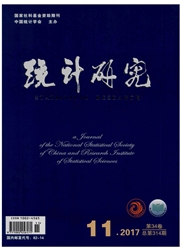

 中文摘要:
中文摘要:
本文以微观居民家庭调查数据为基础,通过建立面板门限模型拓展住房财产函数,实证研究了户籍、知识、政治资本等因素对城镇居民家庭住房财产的影响在不同财富阶层的差异。研究认为:我国的户籍制度与政治资本均起到了加大住房财产不平等的作用,但只有具有一定政治地位的少数人群才能在住房财产持有上占优势;近年来市场化力量的增长在一定程度上抑制了上述非市场因素的作用;然而市场化因素对住房财产的影响也存在一些值得关注的问题,如知识(经验、教育水平)对住房财产的影响随社会阶层的变化存在显著的“门限效应”,且为“上扬曲线”轨迹,这意味着越富裕的人群读书越有用,教育不平等与住房不平等在相互加强;而在较贫穷阶段,经验的重要性远高于教育。
 英文摘要:
英文摘要:
Basing on the micro household survey data, this paper does an empirical research on how 'hukou' , knowledge, political capital and other factors influence the urban residential property in different wealth class levels. Studies show that : ( 1 ) ' hukou' system and political capital with Chinese characteristic have played a role in increasing the inequality of housing property; (2) The gold content of political capital represented by ordinary Party members is reduced, and only the people who have a certain political status still have this advantage; (3) In recent years, the growth of the market power to some extent inhibits the role of the non-market factors and shows the positive side; (4) However, there are some notable problems about the impact of market factors on residential property. For example, the impact of knowledge on residential property has significant "threshold effects"with residential property growth and shows a "upping curve" trajectory. This means that education is more useful for the richer people, and housing inequality and education inequality reinforce each other; (5) In poorer stage, experience is more important than education. Knowledge is limited for changing the fate of the poor.
 同期刊论文项目
同期刊论文项目
 同项目期刊论文
同项目期刊论文
 期刊信息
期刊信息
